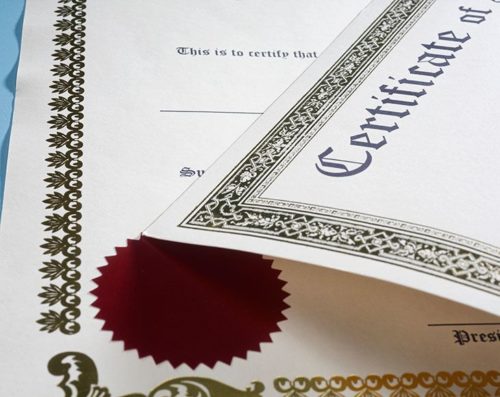February 22nd, 2019 | Sterling
Does your candidate have a fake qualification from a diploma mill?

Last year, the BBC revealed that thousands of people in the UK had bought fake degrees from a diploma mill in Pakistan. Meanwhile, in February this year, it was reported that Malaysia’s deputy foreign minister had been accused of falsely claiming he had a degree from the UK’s Cambridge University, when actually it was from Cambridge International University, a non-accredited US institution suspected of being a diploma mill.
In a competitive job market, some candidates may be tempted to add fake degrees from a diploma mill as a way of enhancing their CV and deceiving employers; while others are under the impression that it’s legitimate and will unknowingly purchase a bogus degree. Unfortunately, with technological advancements, this type of fraud is becoming more sophisticated and is a growing problem around the world.
It seems candidates are far more likely to embellish the education and qualifications section of their CV than any other part. According to a YouGov survey, 40% of respondents admitted to having lied about their education or qualifications. Meanwhile, research by Higher Education Degree Datacheck revealed that only 20% of employers perform proper checks on applicants’ qualifications.
What are diploma mills?
Diploma mills are organisations that claim to be a higher education institution but offer illegitimate academic degrees and diplomas – that often require absolutely no academic study – for a fee. They are not recognised by accrediting bodies and will often award degrees in a short period of time, based on ‘life experiences’. Many diploma mills have impressive and convincing-looking websites, and provide ‘students’ with degrees and transcripts that look authentic.
Why are they so risky for employers?
Whether a candidate knowingly bought a fake degree, or was duped into thinking it was genuine, doesn’t really matter from an employer’s perspective as the outcome is the same – by hiring someone who doesn’t have the qualifications they claim to have can pose a significant risk to your business, customers and reputation. It’s therefore crucial that you verify all qualifications before hiring, as part of your background screening process.
How can you tell whether your candidate obtained their qualification from a diploma mill?
- Get a Degree Based on Life Experience
Diploma mills offer students credits for relevant work or life experience. Accredited universities could give credits for specific experiences relevant to the degree, such as internships, but not an entire degree.
- No Physical Location
Diploma mills do not need a physical address or location. They do not need a library, research papers and publications. If your candidate’s ‘university’ only has a P.O. Box address on the university website, this could be a red flag that it’s not an actual higher learning institution.
- Tailor-Made Studies
Diploma mills often offer customised courses that are tailored to the student’s degree of choice and may promise that the degree can be earned in a few months, weeks or even days. On the other hand, legitimate higher learning institutions are more likely to offer a variety of courses for students to pick from that take many years to complete.
- No Homework Needed
If a college or university appears to offer a degree without the need to do any homework or exams, they could be considered a diploma mill. Similarly, if that organisation doesn’t make reference to any professors or teachers, this could also be a strong indication that it is not a ‘real’ higher learning institution. All accredited universities, even online schools, require coursework and interaction with professors.
- Flat Fee for a Degree
Many diploma mills charge on a per-degree basis. Real educational organisations are more likely to charge by the credit, course or semester.
- No Accreditation
While there are some higher learning organisations that don’t share their accreditation for certain reasons, diploma mills usually don’t have legitimate educational, provincial or territorial body or industry accreditation.
How can you avoid being duped by a diploma mill?
One of the most reliable ways to tackle this growing problem is to conduct a thorough education background check before you hire. Education verifications authenticate candidates’ academic history, degree type, honours received, industry qualifications and professional membership claims directly with registrars and administration offices. A professional background screening company will have a database of legitimate educational institutions, as well as known diploma mills, meaning they can be immediately identified during the education verification process. Here at Sterling, if the institution is not accredited or known to us, additional investigation will be conducted to rule it out as a diploma mill.
This publication is for informational purposes only and nothing contained in it should be construed as legal advice. We expressly disclaim any warranty or responsibility for damages arising out this information. We encourage you to consult with legal counsel regarding your specific needs. We do not undertake any duty to update previously posted materials.
